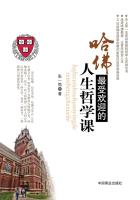For such matters Fanshaw did as well as another.But as Dumont became less of a wolf and more of a lion, less of a speculator and more of a financier, he had less and less work of the kind Fanshaw could do.
But Leonora, unaware of her husband's worthlessness and desperate in her calamities, sneered and jeered and lashed him on--to ruin.
The coyote could put on the airs of a lion so long as the lion was his friend and protector; when he kept on in kingly ways after the lion had cast him off, he speedily came to grief.
As he stood looking helplessly up and down Broad Street he was debating what move to make.There were about even measures of truth and falsehood in his statement to Dumont--he did need two hundred thousand dollars; and he must have it before a quarter past two that day or go into a bankruptcy from which he could not hope to save a shred of reputation or to secrete more than fifty thousand dollars.
"To the New York Life Building," he finally said to the driver as he got into his hansom.Then to himself: "I'll have a go at old Herron."He knew that Dumont and Herron had quarreled, and that Herron had sold out of the National Woolens Company.But he did not know that Herron was a man with a fixed idea, hatred of Dumont, and a fixed purpose, to damage him at every opportunity that offered or could be created, to ruin him if possible.
When the National Woolens Company was expanded into the huge conglomerate it now was--a hundred millions common, a hundred millions preferred, and twenty millions of bonds--Herron had devised and directed the intricate and highly perilous course among the rocks of law and public opinion in many states and in the nation.It was a splendid exhibition of legal piloting, and he was bitterly dissatisfied with the modest reward of ten millions of the preferred stock which Dumont apportioned to him.
He felt that that would have been about his just share in the new concern merely in exchange for his stock in the old.When he found Dumont obdurate, and grew frank and spoke such words as "dishonor" and "dishonesty" and got into the first syllable of "swindling," Dumont cut him off with--"If you don't like it, get out! I can hire that sort of work for half what I've paid you.You're swollen with vanity.We ought to have a young man in your position, anyhow."Herron might have swallowed the insult to his pride as a lawyer.
But the insult to his pride in his youth! He was fifty-seven and in dress and in expression was stoutly insisting that he was still a young man whom hard work had made prematurely gray and somewhat wrinkled.Dumont's insinuation that he was old and stale set a great fire of hate blazing; he, of course, told himself and others that his wrath was stirred solely because his sense of justice had been outraged by the "swindling."Fanshaw entered Herron's office wearing the jaunty air of arrogant prosperity, never so important as when prosperity has fled.But Herron's shrewd, experienced eyes penetrated the sham.















